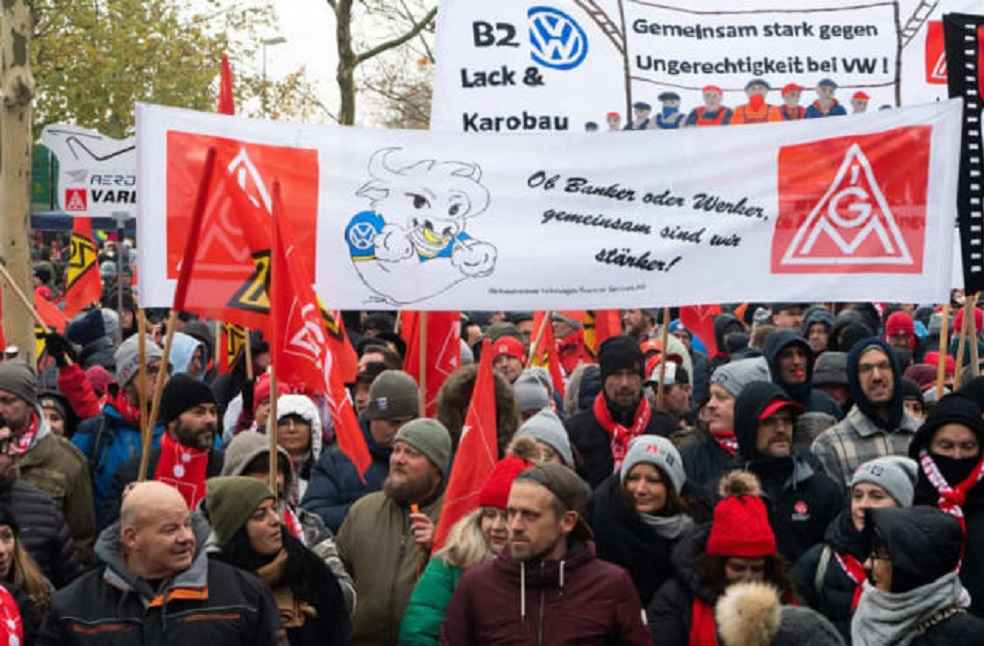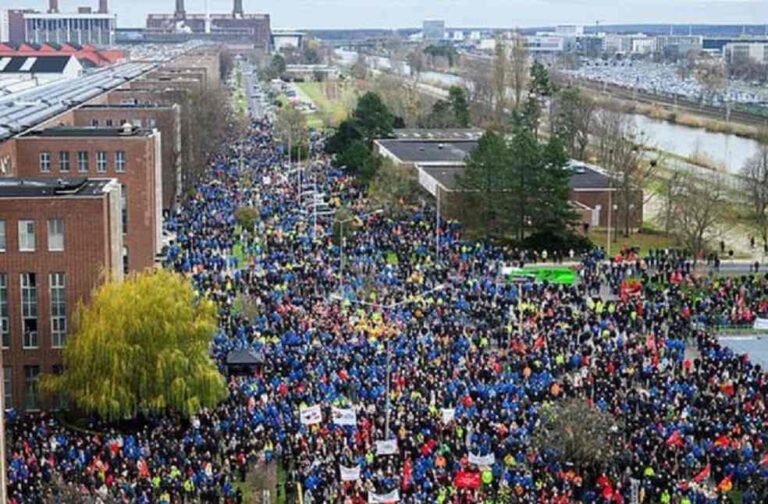Volkswagen, Europe’s leading carmaker, is grappling with escalating labor unrest, cost-cutting challenges, and rising competition that threaten its foothold in the global automotive market.
On December 9, approximately 68,000 workers across nine German Volkswagen plants staged strikes, marking a significant escalation in industrial action led by the IG Metall union. Union leaders warned of potential 24-hour or indefinite walkouts if upcoming negotiations on December 16-17 fail to produce progress.
The strikes reflect deep frustration with Volkswagen’s proposals for wage reductions and potential plant closures, measures the automaker argues are necessary to combat declining European demand and intensified competition from low-cost Asian manufacturers.

Thorsten Groeger, a senior union leader, described recent talks as the first held in a ‘constructive climate,’ but cautioned that without tangible outcomes, employee actions would escalate.
The labor unrest coincides with heightened political and economic uncertainty in Germany. Chancellor Olaf Scholz, facing waning public support ahead of a snap election, urged Volkswagen to avoid factory closures, amplifying the political stakes for the company.
Volkswagen’s financial struggles have also drawn scrutiny. The automaker’s stock has plummeted nearly 25% this year, making it one of the weakest performers among European carmakers. Critics, including labor leaders, have blamed poor crisis management for eroding trust and damaging the Volkswagen brand.
Volkswagen’s difficulties underscore broader transformations in the automotive industry, particularly the shift to electric vehicles (EVs). Rivals like China’s BYD have aggressively expanded their market share, challenging established players like Volkswagen to adapt swiftly.

CEO Oliver Blume defended Volkswagen’s cost-cutting measures, describing them as critical to addressing overcapacity and high operating costs in Germany. “Volkswagen management cannot operate in a fantasy world,” Blume said, emphasizing the need for decisive action to sustain competitiveness.
With strikes poised to escalate and competitive pressures mounting, Volkswagen faces significant hurdles in navigating industry shifts while addressing worker concerns. The outcome of upcoming negotiations will be pivotal in determining the company’s ability to stabilize operations and maintain its leadership in the automotive sector.
NEW LAUNCH | SAIC Motor Opens Haitong Taicang Auto Terminal, Yangtze’s Largest RoRo Hub





